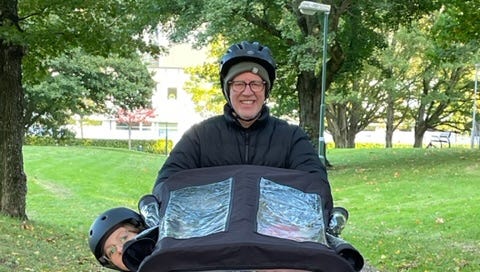Sweden can teach us a lot about successful parenting
The Swedish way of parenting is a fascinating mix of pragmatism, globalism and stoicism.
I’m currently spending time in Sweden with my son and his family. I’m struck by how differently children are raised here. than they are in Australia and other English speaking countries.
This is my sixth trip in six years so I’ve had a chance to check out the culture, the education scene and the way kids are raised.




